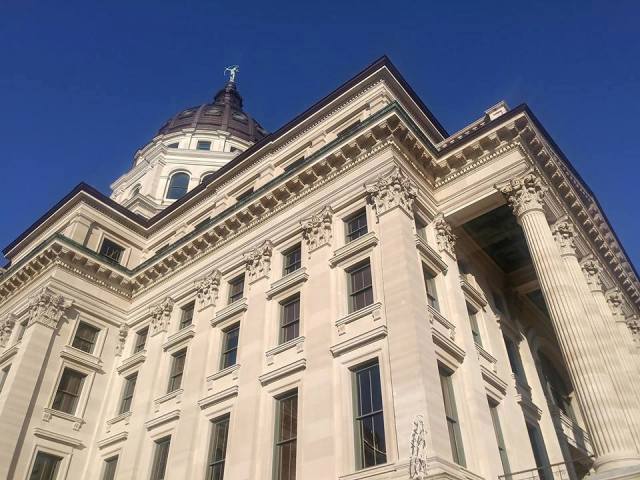
3.19.21 – Gardner News
“This committee is well aware of the strain the pandemic has placed on the UI trust fund and the subsequent fraudulent claims debacle,” Murray …
The problems at the Kansas Department of Labor have not gone without notice by associations representing Kansas businesses. Both the NFIB and Kansas Chamber have testified before the state legislature.
Dan Murray, state director for the National Federation of Independent Businesses, recently testified before the Senate Commerce Committee regarding HB2196, which addresses many of the problems confronting employers and employees regarding unemployment benefits.
“This committee is well aware of the strain the pandemic has placed on the UI trust fund and the subsequent fraudulent claims debacle,” Murray told the commerce committee. “These unemployment insurance problems are hitting small business owners while they are fighting for the survival of their businesses during this unprecedented pandemic. Now confronted with the continued depletion of the UI trust fund and resulting increased UI taxes, owners need assurance that necessary actions are being taken to shore up the fund.”
Employers pay unemployment taxes based on an “experience” rating established and assessed by the KDOL to be held in trust for employees when not working. During the pandemic, many unemployed residents have complained they can’t contact the KDOL and are not receiving benefits.
According to Murray, a recent audit has discovered that at least $600 billion was bilked from the fund by organized crime and international swindlers. The failure of the KDOL to prevent this fraud could have an impact on employers, because employers are responsible for replenishing the fund when the balance decreases below a threshold.
The $600 billion fraud claim is correct, said Sherriene Jones-Sontag, vice president of communications for the Kansas Chamber of Commerce. “The numbers are so shocking, but yes, it’s correct,” said Jones-Sontag. Many people received e mails that they were eligible for unemployment benefits even though they were still employed.
The Kansas Chamber was contacted by a number of members who received notices from KDOL for employees who did not lose their jobs but employers were notified they were applying for unemployment, Jones-Sontag said.
HB2196, if approved, would protect businesses from future drastic swings in their unemployment rating experience.
Unfortunately Kansas businesses do not have any recourse, even though employers did their due diligence and paid taxes into the unemployment insurance trust fund, and the state failed to adequately protect those resources, said Jones-Sontag. HB 2196 is supported by the business community and has provisions to hold employers harmless for the fraudulent charges filed under their account. However, it’s not that simple.
The Kansas Chamber and others last August asked Governor Kelly’s SPARKS Committee overseeing the first round of federal COVID-19 stimulus money for the state ($1.2 billion) to put $300 million in the UI trust fund to help avoid a tax increase on Kansas employers. HB 2196 has a provision that would require a transfer of $450 million if federal COVID relief funds become available, Jones -Sontag said. “With this new round, we are hopeful we can get there. That would significantly help avoid tax increases on Kansas employers.”
“If the legislature and Governor Kelly fail to refund the UI reserves and modernize the UI rate tables, employers will see their contribution rates go up drastically because the formula looks at the balance in the trust fund and that balance is low enough that contribution rates will the balance in the trust fund and that balance is low enough that contribution rates will increase,” she said.
HB 2196 includes a provision that would require that at least $450 million in new federal COVID aid dollars be deposited in the UI fund account. In addition, there is a provision that says employers must be held harmless for any claims made against them which were deemed fraudulent, Murray said. Therefore, employers experience rating, which impacts their tax rate, would not be increased due to fraud.
HB2196 provides for an audit of the UI system, with a preliminary report by May 1, 2022, and a final report by Sept. 1, 2022:
• Examining the effects of fraudulent claims and improper payments from March 15, 2020,through March 31, 2022, and the response by KDOL to such claims; and
• Examining the amounts and nature of such claims, fraud processes and methods, and the potential for recovery of fraudulent payments.
NFIB is a non-profit, nonpartisan organization founded in 1943, NFIB Kansas represents the consensus views of its over4,000 members inKansas.
